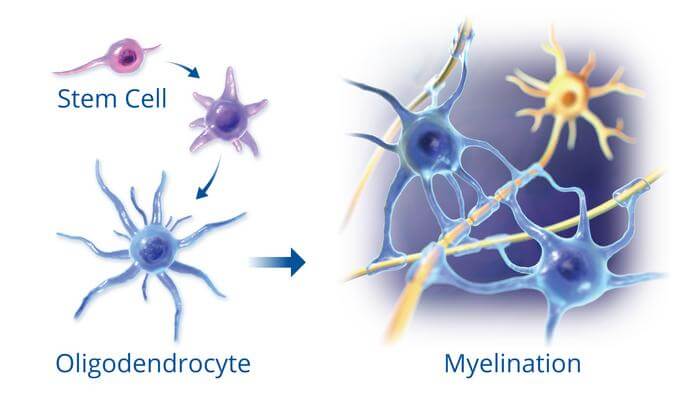DURHAM, N.C. — A newly identified fat molecule in breast milk may help reverse the effects of cerebral palsy, a recent study suggests. Researchers at the Duke University School of Medicine discovered a fatty acid in breast milk that can initiate the production of new white matter in the brain. White matter loss leads to neurological deficits such as cerebral palsy, and currently, there is no treatment to assist infants who have endured such losses.
However, the new study has shown promising indications that the fat molecule could be used to treat infants affected by white matter loss. During recent experiments using neonatal mice, researchers at Duke Health identified the fatty molecule responsible for triggering a process where stem cells in the brain generate new cells, creating new white matter.
This white matter loss, caused by diminished blood flow to the brain, leads to neurological defects and problems with memory, balance, and mobility. Cerebral palsy, a lifelong condition that impairs movement and coordination, influences the development of a baby’s brain as it grows in the womb. It is sometimes attributed to damage to white matter.
The newly discovered lipid molecule in breast milk penetrates the brain, binding with stem cells and encouraging them to either transform into or produce cells known as oligodendrocytes. These cells act as a hub, facilitating the production of white matter in the central nervous system.

In preterm babies – those born alive before the 37th week of pregnancy – the newly produced white matter can prevent the neurological damage that would otherwise hinder the child’s ability to move, a characteristic feature of cerebral palsy. Dr. Eric Benner, an author of the study and a distinguished assistant professor at Duke University’s Department of Pediatrics, acknowledged the importance of upcoming clinical trials. Nevertheless, he expressed optimism about the promising results.
“Developing therapies for children — especially such medically fragile children — is very difficult to do because there are justifiably strict safety concerns,” Benner says in a media release. “The fact that this molecule is already found in something that is safe for premature babies – breast milk – is extremely encouraging.”
“It’s been known that fats in breast milk benefit a child’s brain development, but there are many types of fats in breast milk,” the study author continues. “This work has identified a lipid molecule in breast milk that promotes white matter development. Now, we can begin to develop a therapy that isolates and delivers this lipid in a way that is safe for the unique challenges of these infants.”

Dr. Benner is a neonatologist at Duke University and one of the co-founders of Tellus Therapeutics, a company developed with the help of Duke University to bring this therapy from the bench into the neonatal intensive care unit.
The fatty molecule identified in the study will be injected into patients in upcoming clinical trials, which is significant due to many vulnerable infants also suffering from gastrointestinal issues, meaning they cannot safely be given milk or medication orally.
“The timing of brain injury is extremely difficult to predict, thus a treatment that could be safely given to all preterm babies at risk would be revolutionary,” said Agnes Chao, M.D., a former fellow in the Division of Neonatology and first author of the paper.
“As a neonatologist, I’m so excited that I may be able to offer a treatment to families with babies that are affected by preterm brain injury who would otherwise have no other options,” Chao concludes.
The findings are published in the journal Cell Stem Cell.
South West News Service writer James Gamble contributed to this report.

